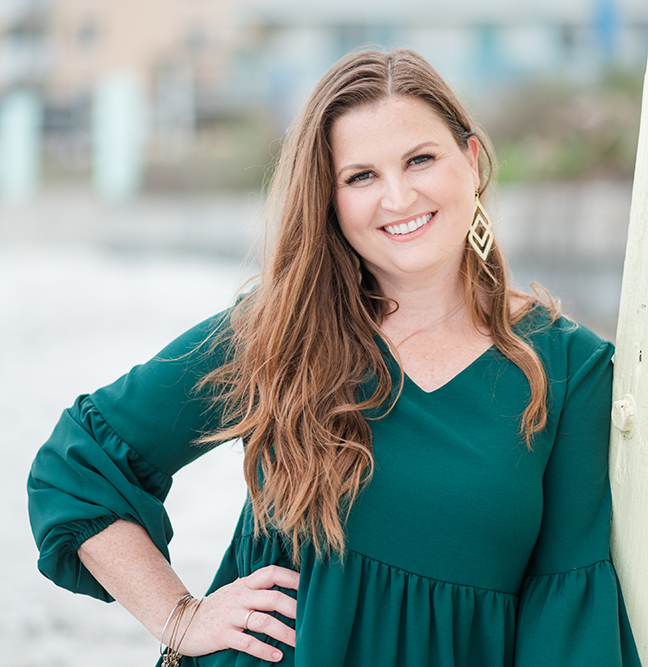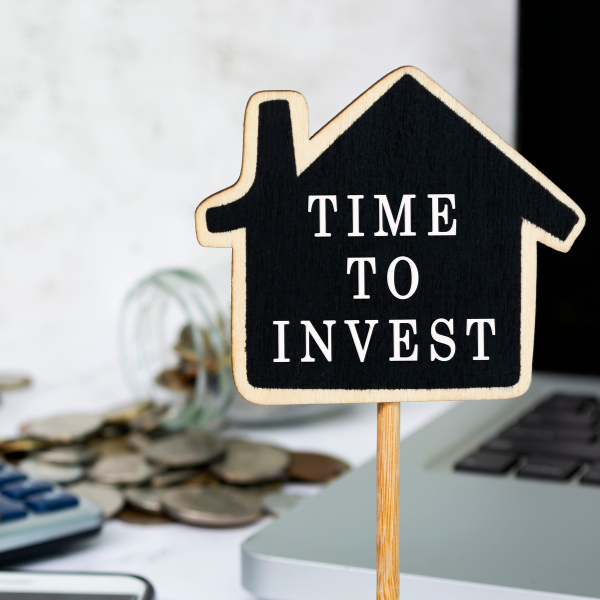FAQ
You don’t have to do this alone! It’s my goal to provide you with the resources needed to make your SMART MOVES when you need it most.
We want you to be able to navigate the next steps of your life with grace, confidence, and clarity.
Compiled below is a list of frequently asked questions and answers. Let us help you buy, sell, and invest!

General Questions
Can I buy/sell a home at the same time?
Yes, it is possible to buy and sell a home at the same time! There are a few options available to you in such a situation, all of which I can help with:
Rent out your current home and purchase a new home. This allows you to generate rental income while acquiring a new property. However, this option requires careful financial planning and ensuring that you can manage both properties effectively.
Sell your current home first and then purchase a new home. This approach involves putting your home on the market, completing the sale, and then searching for a new home. This option provides more financial stability and the assurance of funds from the sale.
Buy/sell on the same day, requiring simultaneous closings on each. As one may imagine, timing is key but is very much feasible with the right planning and preparation. Making sure all boxes are checked off every step of the way on both the buying and selling sight is highly important. You have to ensure everything is lined up.
Should I order a home inspection?
Getting a property inspected is a healthy idea for both buyers and sellers! For sellers, a pre-sale inspection helps determine the safest price range for negotiations. For buyers, one is usually required for loan approvals and is a good precaution before closing on a home.
I recommend consulting with a real estate professional so they (or I!) can learn your circumstances and provide valuable guidance as to whether or not a home inspection is ideal for you.
Do I get to work with you directly or with your team?
You will most likely be working with me. On the occasion we need to tag-team with a local Real Estate expert, I do my best to maintain the most trusted of sources. You're in good hands!
I also have plenty of listings directly associated with just myself, so rest assured that I am the most committed Realtor you can hire for your needs.
Do you have a referral network?
I am very proud to say YES! My network is very expansive and ensures most any real estate need is covered. Whether it's through my affiliation with Exit Real Estate Property Solutions or with the business partners I've made over my years... if there is a particular request you have, chances are I can fulfill it.
Looking to buy a home in another state or even country? Need help finding movers to clear precious artwork safely and securely? Do you want your home professionaly staged for viewings? Contact me today and I can walk you through any specific scenario that might come up.

Buying a House
What kind of fees do you charge?
Any fees that show up during the buying (or selling) process are always nicely outlined. I ensure that you are taken care of with all the knowledge needed to make smart moves.
Are real estate prices negotiable?
Yes, real estate prices are almost always fully negotiable! Almost any real estate transaction can expect some type of back-and-forth between the buyer and seller. Buyers can send a reasonable offer that is less than the listing price, and the seller can then decide to provide a counter-offer.
As one may expect, market conditions will significantly determine the success of a mutually acceptable price negotiation. Competitive areas with very little inventory will likely see prices negotiated to be higher than the listed price in an effort to buy the home over other prospective buyers.
Once again, though, I always recommend trusting the guidance of a licensed professional to guide you towards making the right kind of offers on homes!
Should I do a final walk-through?
Yes, a final walkthrough is highly recommended before closing on a real estate transaction. It serves as a final opportunity for the buyer to inspect the property and ensure its condition aligns with the agreed-upon terms of the purchase agreement. Always better to be safe than sorry!
If any issues are identified during the final walkthrough, you can work with your real estate agent or attorney to address them before the closing. Depending on the nature of the issues, solutions may involve requesting repairs, further negotiations, or adjustments to the closing terms.
Similar to performing inspections, this can save you hundreds or even thousands of dollars and potential heartache down the line!
What is earnest money and how does it work?
Earnest money is an upfront deposit made by a buyer to the seller as a show of good faith and commitment to purchasing a property. It is often referred to as a "good faith deposit" because it demonstrates the buyer's intention to complete the purchase if certain conditions are met. You're putting your money where your mouth is, essentially.
The amount of earnest money required varies but is typically a percentage of the purchase price, typically between 1% and 3%. It is typically held in an escrow account managed by a third party, such as a title company or attorney. At closing, the earnest money is typically applied towards the buyer's down payment or closing costs.
If the buyer decides to back out of the transaction without any valid reasons specified in the purchase agreement, they may risk forfeiting the earnest money to the seller. That's why it's important to know your commitment ahead of paying any type of earnest money!
Local regulations and requirements can also differ from city to city or state to state. Always refer to a professional to help better understand what to expect.

Selling a House
How do I begin listing my home for sale with you?
First of all, schedule an appointment with me ASAP! We will need to go over the details of your home, answer any questions you have or tackle any immediate concerns you might have about the property.
From there, I'll provide something called a Comparative Market Analysis (CMA). This CMA will compare your home with similar recently sold properties in your area. This allows me to provide you a realistic and competitive listing price that maximizes the chance of getting fair offers immediately.
We'll then sign an agreement to proceed, and I will then start working on providing recommendations on how to best prepare your home for showings as well as set up professional services to market your new listing.
The whole process is long and can't fit here, so we'll go into the rest of it when we meet in person! I promise it's worth it.
What do you think the seller will accept as a fair price?
That's going to be a tough one to answer easily, I'm afraid!
What I can tell you, though, is that I will work closely with you to ensure the first offer we give on a listing is one that is respectable and will be taken seriously by the seller. I am very comfortable working within tight time constaints and competitive properties that get multiple offers on the first day.
You can rest assured that we will do everything within your budgetary restraints to try and get you your dream home!
How should I prepare my house before putting it on the market?
There's lots to do to keep you busy when you decide to sell your home. I'll provide just a short list of things to consider prioritizing when you start prepping to list:
- Declutter & Deep Clean Your Home
- Remove Anything That "Personalizes" Your Home
- Repairs & Maintenance
- Work on Curb Appeal
- Stage Your Property
And most importantly:
- Consult With a Realtor!
Having a Realtor like me in the equation allows for someone to put their eyes on your specific home to see what should take precadence. I have valuable input I can provide that will help make sure you can list your house at the highest possible dollar!
How long does selling my property take?
The duration of selling a property can vary depending on market conditions. What could be considered the average for your area in one year could be greatly different in the year before or after! Fluctuation is something to expect, but a Realtor has the tools to identify the most accurate numbers local to you for proper expectations.
One thing to know as you take a step towards selling your home is to prepare for the unexpected. Your home could sell within 24 hours of being listed if you're lucky, or it can go unsold for an entire quarter of the year. This is why it's important to not go at it alone! Trust a licensed professional to help you when the going gets hot or cools off too much for your comfort.

Investing in Property
What are the benefits of investing in property?
Investing in property offers several benefits to investors, as one would expect! But first, you need to make sure you're committed to becoming an investor.
Assuming you've made the leap and want to start investing... Firstly, it can provide a source of passive income and stable cash flow. Secondly, investing in property can offer tax advantages. It can allow you to become eligible for deductions related to things like mortgage interest, property taxes, insurance, and depreciation.
Furthermore, real estate investments can provide a hedge against inflation. Property values and rental rates often increase over time, helping investors preserve their purchasing power.
The list of benefits goes on! Realtors dedicated to their investor clients can provide many more advantages towards this side of the business should you be interested. Be sure to let your dedicated agent know!
How do I get started with investing in property?
Getting started in property investment requires careful planning and research. Going into what is required is more involved than a simple FAQ answer, but here are some steps to consider:
- Set your goals: Determine your investment objectives and what you hope to achieve through property investment.
- Establish a budget: Evaluate your financial situation and determine how much you can comfortably invest.
- Educate yourself: Learn about the real estate market, property types, investment strategies, and local regulations.
- Build a team of experts: Surround yourself with professionals who can assist you in different aspects of property investment. This can include real estate agents, attorneys, lenders, property managers, and contractors. I also highly recommend hiring a CPA as well as an exchanger if you may be looking into going down the 1031 exchange route.
- Secure financing: Explore financing options such as mortgages, loans, or partnerships to fund your property investment.
I would highly recommend researching beyond here if you want to commit to investing, but I also cannot say it enough — speak to a Realtor such as myself so we can guide you more directly towards how to approach investment properties!
How much money do I need to invest in property?
Here is a general overview of some of the costs you may need to consider when investing in property:
- Down payment: Depending on the financing option you choose, you may be required to make a down payment on the property. The amount needed for a down payment can vary, but generally, it ranges from 5% to 20% of the purchase price.
- Closing costs: These are the fees associated with the transaction of buying the property. They can include legal fees, title search fees, appraisal fees, and more. Typically, they amount to 2% to 5% of the purchase price.
- Ongoing expenses: Once you own the property, you will need to cover ongoing expenses such as property taxes, insurance, maintenance, repairs, and property management fees if applicable.
- Funding for renovations: If you plan to renovate the property, you will need to consider the cost of these renovations and how they will be funded.
It's worth noting that different investment strategies may require different investment amounts. For example, buying a single-family home and renting it out may require less upfront investment than purchasing a larger commercial property. Additionally, financing options can also affect the amount of money needed to invest in a property.
Ultimately, it's essential to work with a financial advisor or real estate professional so that they may help set a realistic budget for your investment goals!
What are some common mistakes to avoid when investing in property?
When investing in property, it's important to be aware of common mistakes that many investors make. Here are some examples of mistakes to avoid:
- Lack of research
- Overpaying for properties
- Ignoring ongoing expenses
- Underestimating renovation costs
- Lack of diversification
- Emotional decision-making
- Not seeking professional advice
That last one is going to be the absolutely most important thing to avoid! Trusting a professional's insight can help make sure you automatically avoid all of those other listed mistakes and so much more. Be sure to avoid going solo during your journey as an investor. It's well worth the time, effort and money to hire those with more experience than you have yourself.
Kind Words from Kind Clients
– Yvonne M.

